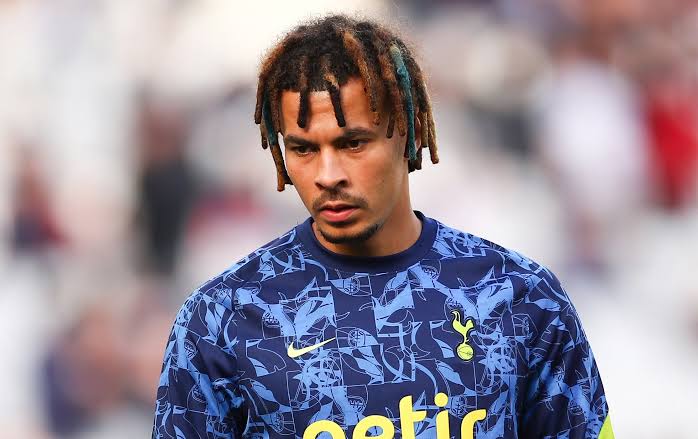Dele Alli and the narrative of a childhood gone awry.
By Femi OlugbileOn the 13th of July 2023, the British-Nigerian football Dele Alli granted an interview to retired footballer and journalist, Gary Neville. The interview created immediate sensation in international sporting media. Dele disclosed that he had been sexually abused as a little boy of six years old. Following that, according to his revelation, he was dealing drugs on the streets by the age of eight years.
It was not clear to many people who had followed Dele’s career over the years, why he made those disclosures. Was it to put things in context, given the precipitous decline his playing career has undergone in the past few years? At on point he was one of the golden boys of English soccer, part of an awesome attacking combination with Harry Kane at high-flying Tottenham Hotspur, and a shoo-in for the England team. A lithe, darkly handsome masculine specimen, he was the perfect dream of many young ladies.
Suddenly the lustre seemed to fade from the Tottenham team, and Dele epitomised the decline. On the field he became a shadow of what he had been before, lumbering, lacking vigour or imagination. He could no longer keep his place on the starting eleven, and he became a scarcely used substitute. Rumour had it that he was out of favour with Jose Mourinho, the sweat merchant who took over from Mauricio Pochettino as coach. Gradually he drifted into the wilderness.
He moved to Everton, under coach Frank Lampard. Perhaps he could rediscover his zeal there?
Unfortunately, the story was the same – worse, even. Sometimes he did not make the list of substitutes.
Off he went to Turkey, to Besiktas, on loan.
Sadly, the story of Dele was more of the same. There were reports of a nasty falling out with the coach. The club did not feel they were getting value for money.
He has since returned to Everton.
Life on the fast lane for the cream of professional footballers could be exhilarating, with millions in the bank, and fast cars, and beautiful women. It could also be short and brutish when it went awry, as Dele’s has been threatening to go for the last few years.
Dele concluded his tell-all interview with Gary Neville on a Good Cop-Bad Cop note.
When he was twelve, he said, he was adopted by a (white) family in England.
‘…I couldn’t have asked for better people to do what they’ve done for me. If God created people, it was them…’
The implication was that his life had been messed up early by uncaring birth parents, and that he had found salvation only when he was ‘rescued’ by adoptive parents.
By extension, the footballer seemed to be saying, if you’re looking for the reason why my career is in crisis, look at my early life and what my Nigerian father and my English mother did to me.
The ‘It’s not me, it’s my upbringing’ rationalisation for present-day failure falls in tandem with the Freudian theory that adult life is determined substantially by early childhood experience.
However, it appears that certain details of Dele’s heart-wringing story may not be true.
Dele was born of a Nigerian father, Kenny Alli and an English mother Denise. The relationship broke up when Dele was three. Kenny subsequently returned to Lagos. Dele was with his mother for some time. She might have had some difficulty rearing him.
At some point along the way, Dele was brought to Lagos to live with his father’s family.
From the age of seven years, he attended Avi-Cenna International School, Ikeja GRA.
He was with his father till the age of eleven when his now remarried father decided to relocate to USA.
He was taken back to his mother in England.
There, his best friend was a boy named Harry Hickford. They used to play football together, and both had ambitions for professional football careers.
Dele from the age of 13, began to train with the team of MK Dons, and to stay for extended periods with the family of his best friend.
Somewhere along the way, as his footballing career progressed, Dele drew closer into the Hickford family, and was alienated from his birth family.
But he was never adopted.
Nowadays, it is said, Dele does not talk to his Nigerian father or acknowledge him.
He does not want to identify with his Nigerian family, or even his English mother.
But the reality is that Dele the adult is in a hole that he dug for himself, and only Dele can pull himself out of the hole.
His fellow Nigerian footballer and Everton striker Alex Iwobi recollects how Dele used to behave in his early days at Everton.
‘He’s a joke when it comes to training’ remarked Iwobi. He could not find purpose, or motivation. Sometimes there were flashes of brilliance on match day, but they flickered out quickly.
It is to be hoped that Dele can rebalance his story, and his life, still. He is 27, which is approaching middle age for a footballer. He has a few years left, in which he can rediscover himself, and find his purpose. Perhaps he could use a good therapist, who is not out to score any ‘political’ point. He will have to discard the temptation to seek sympathy in a distorted narrative. He will need to own his story, and not look for refuge in the past, or wallow in the vengeful sentiment of an adolescence that did not go to plan.
Dele, tall, gangling, bounding across the football field and spraying passes for Harry Kane to tuck into the net for Tottenham Hotspurs was a proud and exciting sight for many Nigerian, and English, eyes to behold.
The glory days can come again for Dele Alli. But only he can make that happen.

